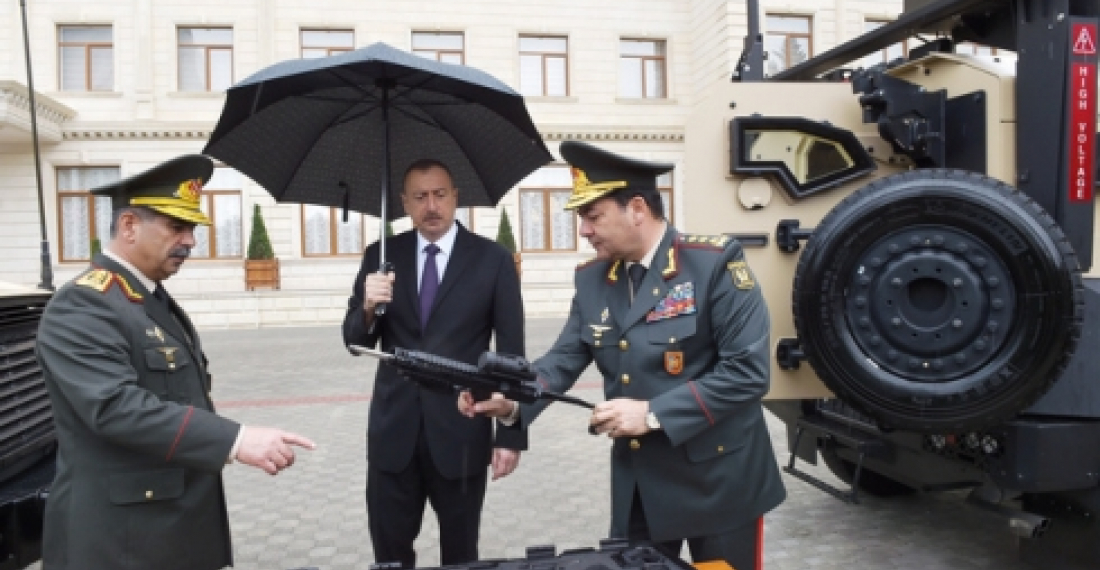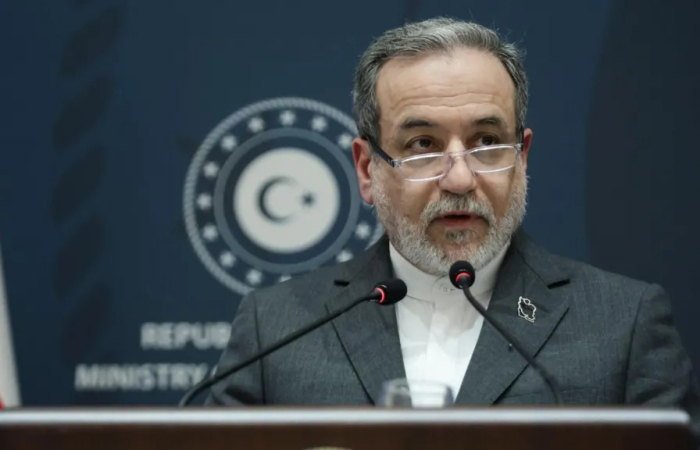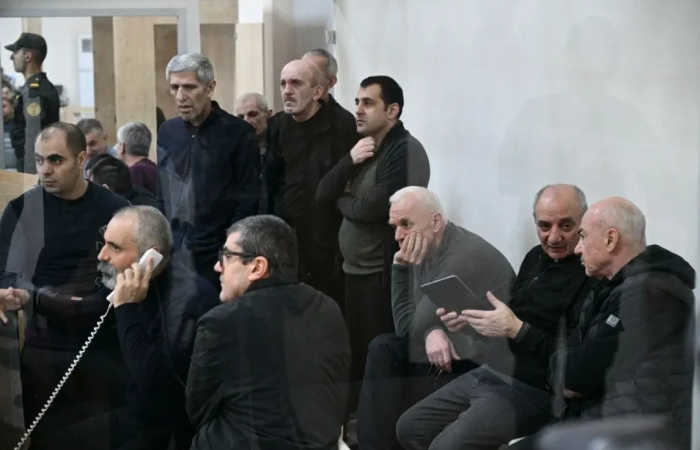Azerbaijan President Ilham Aliev has made his first comments on the meeting he held in St petersburg last week with his Armenian counterpart, on the initiative of the President of Russia, positively assessing the meeting. However he added that if the results of the meeting "are about freezing the conflict and taking some additional measures on the line of contact, then of course, Azerbaijan won't do that". The Azerbaijani president downplayed the issue of increase in OSCE monitors and say the numbers will increase only from six to not more than fourteen. Aliev says investigative mechanism on the line of contact can only start after withdrawal of Armenian forces starts
Aliev was speaking at an event marking Armed Forces day in Azerbaijan.
Referring to the St Petersburg meeting the Azerbaijani President was quoted by the news agency APA as saying that "Hopefully, the process will continue at an accelerated pace. Once again, we are going to these talks without accepting any conditions. Negotiations should be substantive, meaningful and should not be carried out for the show, for the sake of imitation. Following the meeting a joint statement was adopted, which is also public. The declaration set out everything, including ways to resolve the issue. At the same time, we discussed the issue of enlargement of the office staff of the personal representative of the OSCE chairman. True, there is not specified the number, but I can say that if today 6 people working there, this figure may be increased up to 2 - 2,5 times. That is, there we are not talking about a large mission. If we consider that the contact line is measured in tens of kilometers - we should not see in this any significant meeting. The mandate is also in place - no it does not change. Simply, instead of 6 there will be 12, 13 or 14 employees, that's all.
As for the Armenians they put forward the issue of establishing a mechanism to investigate incidents, I believe that at this stage there is no need for this.
Firstly, these arrangements do not exist and no one is specifically saying what these will consist of. Therefore to consider this question today would be wrong. Secondly, what is its purpose? If it is meant to "freeze" the conflict and prevent the adoption of any additional measures on the line of contact, Azerbaijan, of course, will not do it. This can happen as part of a process of positive dynamics in the negotiation process. In case we see concrete results, we know the terms of liberation of our territories - in this case various mechanisms can be possible. Only in that case this issue can be considered".
Ilham Aliev said he wished to mention one important point in the statement adopted in St. Petersburg: "It was noted that in recent times on the contact line of troops the situation has stabilized, the ceasefire restored, which is regarded as a positive phenomenon. In this case, there is no need to apply a mechanism for investigating incidents. That is, and this condition was not accepted. I want to reiterate - we should negotiate on the basis of the subject matter. Aggressive policy of Armenia should be put to an end. We need to know when the process will begin the liberation of our territories. This process will certainly happen. The Azerbaijani side, and I, in particular, have repeatedly pointed out that we can only proceed step by step to resolve the conflict. Because otherwise it is impossible. Armenia is constantly trying to complicate the situation, to break the negotiation process and the option of a phased settlement. But, in our opinion, this is the most appropriate way. It can lead to an early solution of the problem. The principled position of the Azerbaijani government on the issue is known. This position has never changed and will not change.
The issue should be resolved within the territorial integrity of Azerbaijan. Nagorno-Karabakh will never get independence; and second Armenian state will not be created on the historical lands of Azerbaijan. This is the main question. As for the status of Nagorno Karabakh is a matter of the future. Of course, a certain status can be granted. As a part of Azerbaijan, we have the Nakhchivan Autonomous Republic. In Europe and other countries have a progressive experience and different statuses. However, this status should not violate the territorial integrity of our state".
President Aliev was speaking at the opening of a new headquarters for the general Staff of the Azerbaijani Armed Forces.
source: Commonspace.eu with APA.
President Aliev inspects weapons during a ceremony marking Azerbaijan armed forces day.







